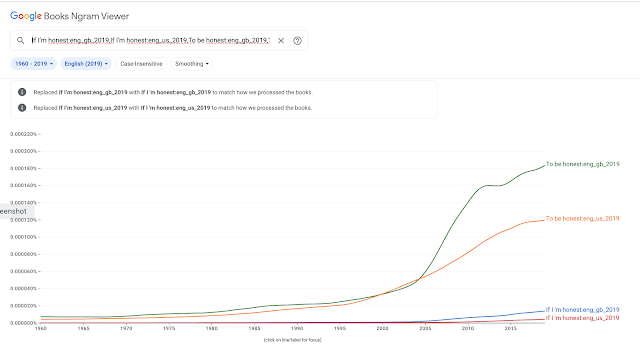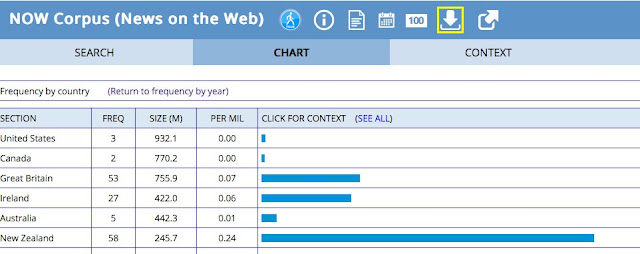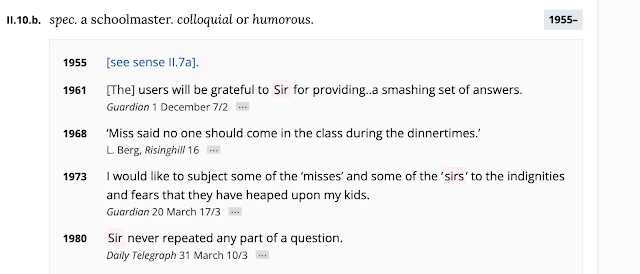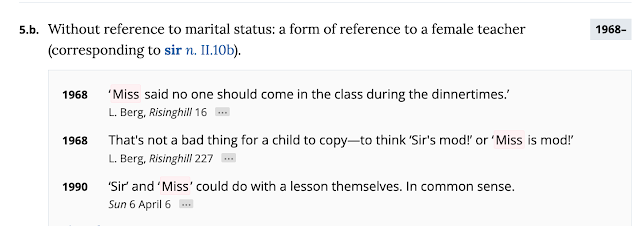See here for the UK-to-US WotY post.
Time for the 2023 US-to-UK Word of the Year. Before people complain that this word has been in British English too long for it to count as a word of 2023, let me remind you of the criteria for SbaCL WotYs:
- Good candidates for SbaCL WotY are expressions that have lived a good life on one side of the Atlantic but for some reason have made a splash on the other side of the Atlantic this year.
- Words coined this year are not really in the running. If they moved from one place to another that quickly, then it's hard to say that they're really "Americanisms" or "Britishisms". They're probably just "internetisms". The one situation in which I could see a newly minted word working as a transatlantic WotY would be if the word/expression referenced something very American/British but was nevertheless taken on in the other country.
- When I say word of the year, I more technically mean lexical item of the year, which is to say, there can be spaces in nominations.
OK!
Though it has appeared in BrE since at least the late 19th century (originating in AmE earlier in that century), OK took a while to make its way into everyday speech in the UK. (Click on images to enlarge them.) Here's its trajectory in books (via Google Books Ngram Viewer).
[I]n American English, right conveys the speaker's knowing stance and, in certain environments, the speaker's claim of primary knowledge. In contrast, in British English, right registers provided information as previously unknown, informative, and relevant to the current speaker's ongoing project.
[...]
[S]ome UK usages of right—such as registering of potentially consequential information and projecting a transition—are quite similar to US okay in comparable positions [...]. This suggests a possibility that, in US English, okay took over some of the right usages and/or, in UK English, right took over some of the okay usages."
Their research was inspired by this interaction between BrE-speaking "AB" and AmE speaker "GA":
So, essentially, the British use of right in that context leads GA to think that AB is confirming (rather than acknowledging receipt of) the information. If AB had said OK, then GA would have understood it as acknowledgement rather than confirmation.
Even though the researchers note differences in usage between BrE and AmE okay (though keep in mind that their research is about right), it seems like a fitting US-to-UK WotY because (in whichever usages), it's used more than ever in the UK. Here it is in the British section of the News on the Web corpus, where it shows OK and okay climbing in the last couple of years.

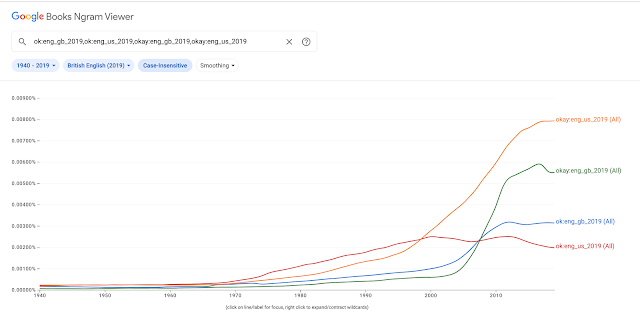






_by_Blake_Shelton.png)
